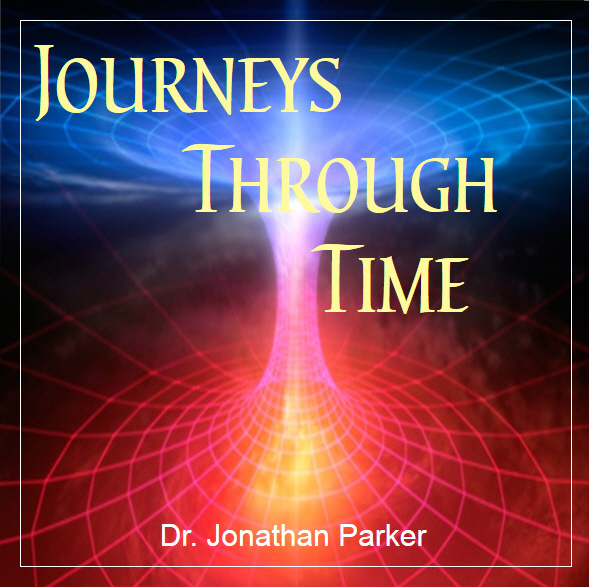Reincarnation Research Findings

Before diving in, please note: This post is for informational purposes only. If you’d like to know more about how we approach topics, feel free to check out our friendly Disclaimer Page.
Hey there, amazing readers! 🖐️ Just a quick note: yes, we know there are a lot of ads here. Trust us, we get it—it’s not the prettiest look, but they help us keep this blog alive and kicking. Those pesky little ads cover the costs of all the behind-the-scenes magic, from hosting and tech stuff to creating content we hope you’ll love.
We’re committed to delivering quality posts, and your support (even just sticking around despite the ads) means everything to us. So, bear with us, and thanks for helping us keep the good vibes rolling. Now, on to the fun stuff! 😉
TRANSLATE BUTTON AT THE END OF THE ARTICLE
Introduction to Reincarnation Research
Reincarnation, the belief that a person’s soul can be reborn into a new body after death, has fascinated people for centuries.
While often associated with spiritual and religious traditions, reincarnation has also been the subject of scientific inquiry.
Reincarnation research aims to investigate claims of past life memories in children and adults to determine if there is any empirical evidence supporting the idea of reincarnation.
This field of study seeks to bridge the gap between spiritual beliefs and scientific scrutiny, exploring the possibility that consciousness may persist beyond physical death.
Methods Used in Reincarnation Studies
Reincarnation researchers utilize various methods to investigate reported cases of past life memories.
One common approach is to conduct interviews with individuals who claim to have memories of previous lives.
Researchers carefully document these memories, looking for specific details that can be verified.
Another method involves comparing the recalled memories to historical records to determine if there is any factual accuracy.
In some cases, researchers use techniques such as hypnotic regression to help individuals recall past life experiences.
These methods aim to gather as much data as possible to analyze and evaluate the claims of reincarnation.
Cases of Spontaneous Past Life Recall
One of the most compelling aspects of reincarnation research is the phenomenon of spontaneous past life recall, particularly in young children.
Many cases have been documented where children as young as two or three years old describe vivid memories of a past life.
These children often provide detailed information about their previous identity, family, and circumstances of death that they could not have known through normal means.
Researchers are intrigued by these cases, as they present strong evidence that challenges conventional explanations for these memories.
Analysis of Past Life Memories
In reincarnation studies, researchers carefully analyze past life memories to assess their validity.
They look for specific details that can be corroborated with historical facts or documents.
Researchers also compare the recalled memories with the experiences of the individual’s claimed past life.
By examining the consistency and accuracy of the memories, researchers can determine the likelihood that they are genuine.
This meticulous analysis is crucial in separating genuine cases of past life recall from false or mistaken memories.
Physical Evidence Supporting Reincarnation
Beyond past life memories, some researchers have reported physical evidence that supports the idea of reincarnation.
In some cases, individuals bear birthmarks or birth defects that correspond to injuries or wounds sustained by the person they claim to have been in a past life.
These cases, known as birthmark cases, suggest a possible link between the physical body and past life experiences.
While the interpretation of this physical evidence is still debated, it adds another layer of complexity to the study of reincarnation.
Psychological Effects of Past Life Memories
The psychological effects of past life memories are also a topic of interest in reincarnation research.
Individuals who recall past lives may experience a range of emotions, from confusion and disbelief to a sense of connection and purpose.
Some people find comfort in their past life memories, believing that they offer insight into their current life circumstances.
Others may struggle with the implications of reincarnation, questioning their identity and sense of self.
Understanding the psychological impact of past life memories is essential for researchers seeking to unravel the mysteries of reincarnation.
Reincarnation Studies in Different Cultures
Reincarnation is a concept found in various cultures and religious traditions around the world.
Researchers studying reincarnation have examined cases from different cultural backgrounds to understand how beliefs about past lives manifest across diverse societies.
While the specifics of reincarnation may vary from one culture to another, the underlying themes of rebirth and spiritual continuity remain consistent.
By exploring reincarnation studies in different cultures, researchers gain a broader perspective on the human experience and the interconnectedness of beliefs about life and death.
Criticisms of Reincarnation Research
Despite the intriguing findings in reincarnation research, the field is not without its critics.
Skeptics argue that many cases of past life memories can be explained by false memories, suggestion, or cultural influences.
Critics also question the validity of methods used in reincarnation studies, such as hypnotic regression and anecdotal evidence.
Additionally, the lack of concrete scientific proof for reincarnation poses a challenge for researchers seeking to establish the credibility of their findings.
Addressing these criticisms is crucial for advancing the field of reincarnation research and gaining broader acceptance within the scientific community.
Scientific Explanations for Reincarnation
While the concept of reincarnation may seem mystical or spiritual, some researchers have proposed scientific explanations for the phenomenon.
One theory suggests that past life memories could be the result of genetic or ancestral memory, where certain experiences or traumas are passed down through generations.
Another theory posits that reincarnation may be linked to quantum physics and the idea of consciousness existing outside the physical body.
These scientific interpretations offer alternative perspectives on reincarnation that seek to reconcile spiritual beliefs with the principles of modern science.
Reincarnation and Near-Death Experiences
Near-death experiences (NDEs) are another area of study that intersects with reincarnation research.
Many individuals who have had NDEs report encountering deceased loved ones or experiencing a sense of leaving their bodies and entering other realms.
These accounts bear similarities to reports of past life memories, leading some researchers to speculate on the connection between NDEs and reincarnation.
Exploring the relationship between these phenomena sheds light on the nature of consciousness, life after death, and the mysteries of the human mind.
Implications of Reincarnation Research
The implications of reincarnation research extend beyond the realms of science and spirituality.
Understanding the potential reality of reincarnation could have profound effects on how we view life, death, and the nature of consciousness.
If reincarnation were proven to be a valid phenomenon, it would challenge existing paradigms of human existence and open up new possibilities for exploring the interconnectedness of all living beings.
The implications of reincarnation research are far-reaching, offering a glimpse into the unknown and encouraging us to question our understanding of the universe and our place within it.
Future Directions in Reincarnation Studies
Looking ahead, the future of reincarnation research holds exciting possibilities.
Advances in technology and methodology may provide new ways to investigate past life memories and validate claims of reincarnation.
Collaborations between researchers from different disciplines could offer fresh insights into the nature of consciousness and the continuity of the self.
As interest in reincarnation studies grows, so too does the need for rigorous scientific inquiry and open-minded exploration.
The future of reincarnation research promises to unlock more secrets of the human experience and shed light on the timeless question of what lies beyond this life.
Conclusion
In conclusion, reincarnation research is a fascinating and complex field that straddles the realms of science, spirituality, and psychology.
Through meticulous examination of past life memories, physical evidence, and cultural beliefs, researchers aim to uncover the truth behind claims of reincarnation.
While the field is not without its critics and challenges, the implications of reincarnation research are profound, offering new perspectives on life, death, and the nature of consciousness.
As we navigate the complexities of reincarnation studies, we may find ourselves on a journey of discovery that transcends the boundaries of what we know and challenges us to rethink our understanding of existence.
The future of reincarnation research holds the promise of unveiling more secrets of the human experience and exploring the mysteries of the soul.

The Enlightenment Journey is a remarkable collection of writings authored by a distinguished group of experts in the fields of spirituality, new age, and esoteric knowledge.
This anthology features a diverse assembly of well-experienced authors who bring their profound insights and credible perspectives to the forefront.
Each contributor possesses a wealth of knowledge and wisdom, making them authorities in their respective domains.
Together, they offer readers a transformative journey into the realms of spiritual growth, self-discovery, and esoteric enlightenment.
The Enlightenment Journey is a testament to the collective expertise of these luminaries, providing readers with a rich tapestry of ideas and information to illuminate their spiritual path.
Our Diverse Expertise 🌟
While our primary focus is on spirituality and esotericism, we are equally passionate about exploring a wide range of other topics and niches 🌍📚. Our experienced team is dedicated to delivering high-quality, informative content across various subjects ✨.
To ensure we provide the most accurate and valuable insights, we collaborate with trusted experts in their respective domains 🧑🏫👩🏫. This allows us to offer well-rounded perspectives and knowledge to our readers.
Our blog originally focused on spirituality and metaphysics, but we’ve since expanded to cover a wide range of niches. Don’t worry—we continue to publish a lot of articles on spirituality! Frequently visit our blog to explore our diverse content and stay tuned for more insightful reads.







